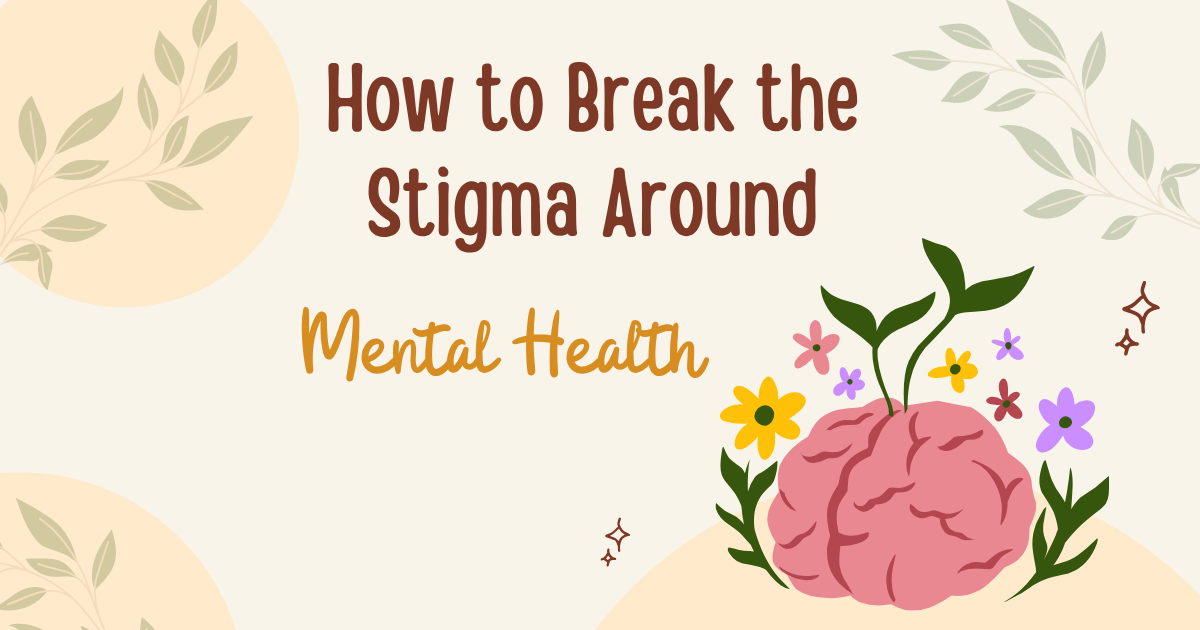How You Can Break the Stigma Around Maternal Mental Health
Maternal mental health has long been a stigmatized topic, often brushed aside in favor of the more "acceptable" aspects of motherhood. Yet, the reality is that one in seven women experience perinatal mood and anxiety disorders, and many are silently struggling. It’s crucial that we break the stigma surrounding maternal mental health, so that every mother feels empowered to seek help, talk openly, and receive the care they deserve.
What is Stigma and Why Does It Exist?
Stigma around maternal mental health arises from societal expectations that motherhood should always be joyful and fulfilling. This unrealistic ideal puts immense pressure on mothers to "bounce back" and hide their emotional struggles. As a result, mothers are often reluctant to share their feelings of sadness, anxiety, or exhaustion, fearing judgment or being labeled as “bad mothers.”
How Stigma Affects Mothers:
Isolation – Fear of judgment can prevent mothers from seeking support, leading to feelings of loneliness and isolation.
Delayed Treatment – Stigma discourages open discussions, which can delay diagnosis and treatment for mental health conditions.
Guilt and Shame – The belief that motherhood should come naturally can make mothers feel guilty or ashamed for struggling emotionally.
Ways to Break the Stigma:
Speak Up and Share Stories: One of the most powerful ways to break stigma is by sharing stories. When mothers open up about their mental health struggles, it normalizes the experience and lets others know they are not alone. If you’ve experienced challenges yourself, your voice can make a huge impact.
Normalize Conversations About Mental Health: Encourage open and honest discussions about mental health within your social circles. Don’t shy away from talking about feelings, therapy, or the challenges of new motherhood. By making these conversations part of the norm, you create a space where others feel comfortable sharing their experiences.
Challenge Harmful Myths: Society is filled with harmful myths about motherhood, such as "good mothers don't struggle," or "you should be grateful for your baby at all times." Challenge these narratives when you encounter them. Educate others about the reality of maternal mental health and advocate for compassionate, trauma-informed care.
Support Mental Health Resources: Advocate for better access to mental health resources for mothers, both during pregnancy and in the postpartum period. Support policies that include mental health screenings, and demand that healthcare providers prioritize mental well-being alongside physical health. Increased access to counseling, support groups, and postpartum care will help reduce stigma and ensure that all mothers can get the care they need.
Be a Supportive Ally: As a friend, partner, or family member, be a supportive ally to mothers experiencing mental health challenges. Show empathy, validate their feelings, and help them seek the care they need. Remind them that it’s okay to ask for help, and offer your support without judgment.
Encourage Self-Care and Self-Compassion: Self-care is not a luxury—it's a necessity for mothers' well-being. Encourage mothers to take time for themselves, even if it’s just a few minutes a day. Remind them that taking care of their mental health is a vital part of being able to care for others.
Final Thoughts:
The stigma surrounding maternal mental health doesn’t just affect mothers—it affects families, communities, and society as a whole. By changing the narrative around maternal mental health, we can create a world where every mother feels supported, understood, and empowered to prioritize her mental health.
Let’s break the silence. Let’s end the stigma.
Let’s continue the conversation! Share this post and help raise awareness about the importance of maternal mental health. #MaternalMentalHealth #EndTheStigma #SupportMothers



